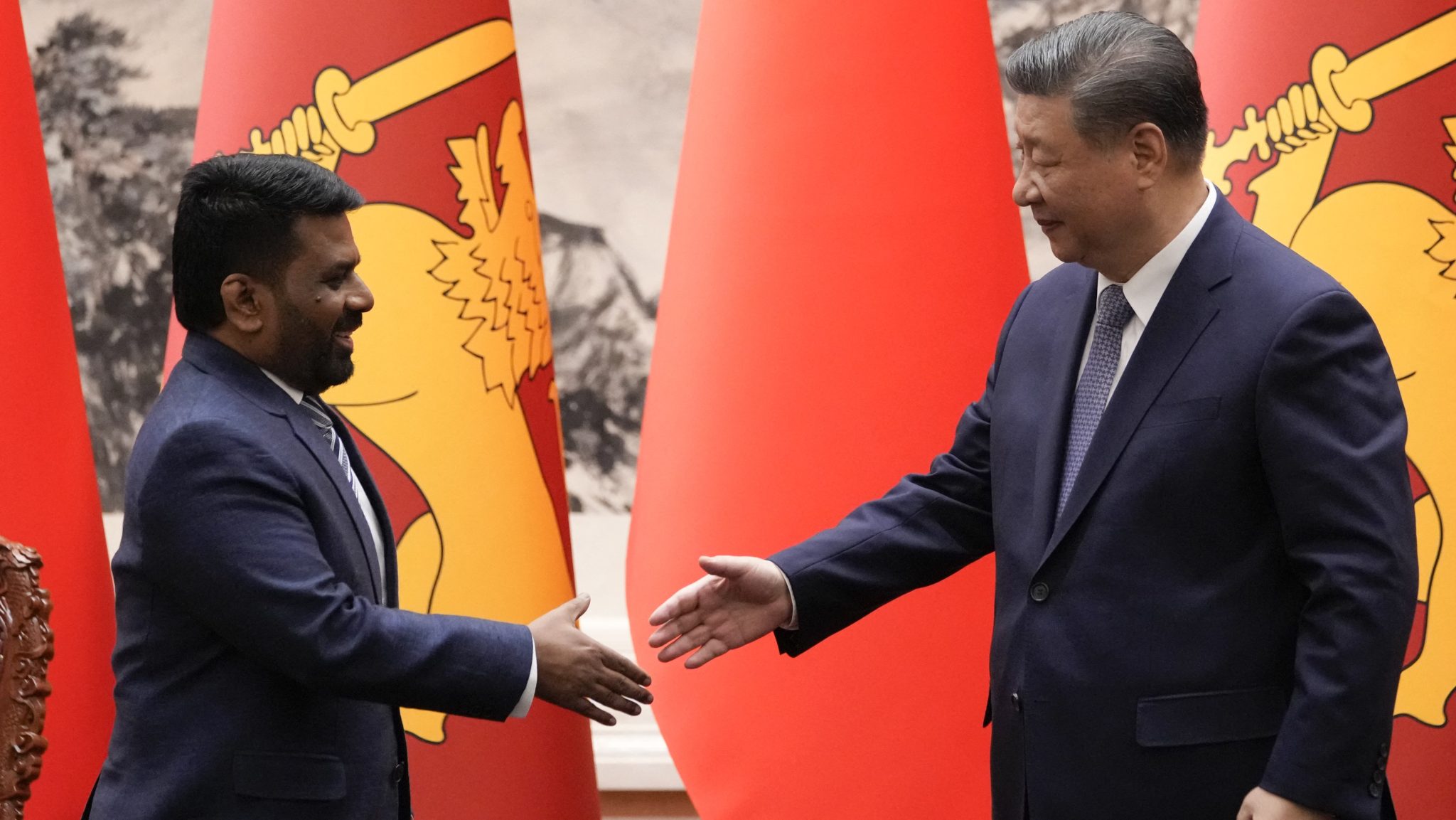Sri Lanka’s decision to sign media agreements with China has raised concerns among media workers over the likelihood of further undermining of the country’s already fragile media freedom.
A media agreement was among several pacts signed with China in the past fortnight by the left-leaning new government.
Still, its details have “not been disclosed to the public,” said Dharmasiri Lankapeli, prominent rights activist, addressing media workers in Colombo on Jan. 30.
Sri Lankan president Anura Kumara Dissanayake reportedly signed at least 15 pacts during his Jan. 14-17 first official visit to China, agreeing to expand cooperation in health, farming, trade, and education.
Officials said Sri Lanka’s Ministry of Health and Mass Media signed MoUs with China’s National Radio and Television Administration (NRTA) and the state-owned Xinhua NewsAgency to support capacity-building programs for officials and journalists.
According to the government, the agreements involve partnerships between state media agencies and audio-visual departments.
Lankapeli, secretary of the Federation of Media Employees’ Trade Unions, believes the agreement allows Chinese media to operate in Sri Lanka and Sri Lanka’s state media operators to get trained in China.
“This is concerning as Sri Lankan journalists push for reforms to protect media independence,” Anthony Sanjeewa, a senior journalist based in Colombo.
He criticized the move, saying it comes at a time when Chinese media are “widely considered as state-controlled” entities used for propaganda.
Sanjeewa, a Christian, told UCA News that the media partnerships will be a “setback for press freedom. Besides, they could compromise local media integrity and align it with foreign interests. ”
China has a trade interest in Sri Lanka and, between 2004 and 2014, gave the island nation some US$7 billion in loans and investments.
The tiny South Asian nation that experienced its worst economic crisis two years ago currently has a debt of US$64 billion. Reports show that 95 percent of state revenues are spent servicing loans.
However, China continues to invest, and the pact signed with Dissanayake recently includes a $3.7 billion deal to establish an oil refinery in Hambantota.
Other agreements included a renewed currency swap agreement and the advancement of Belt and Road Initiative (BRI) projects, such as a seaport in Colombo and an airport in Hambantota.
Journalists point to the 2024 World Press Freedom Index released by Paris-based Reporters Without Borders (RSF), which says Sri Lanka’s press freedom ranking has dropped by 15 positions, falling to 150th place from 135th the previous year.
Lankapeli said that journalists in the country have faced a brutal and repressive regime for more than two decades, destroying media institutions.
Senior journalist Mylvaganam Nimalarajan was murdered allegedly by pro-government Tamil military gunmen in his home in 2000. His murderers were arrested in London, but the Sri Lankan government has yet to bring them back to Sri Lanka.
Prominent government critic editor Lasantha Wickrematunga was murdered in 2009, followed by the 2010 disappearance of cartoonist Prageeth Eknaligoda. Several media outlets faced attacks, including the Tamil-language Uthayan newspaper.
As the government enters media cooperation with China, it should also ensure media freedom, Lankapeli said.


